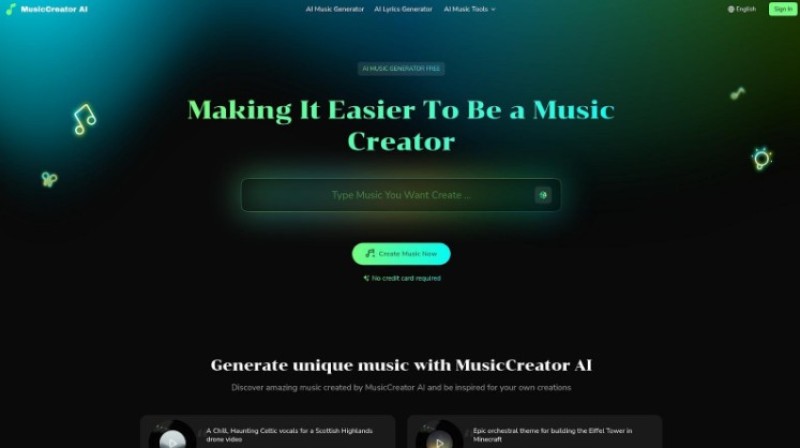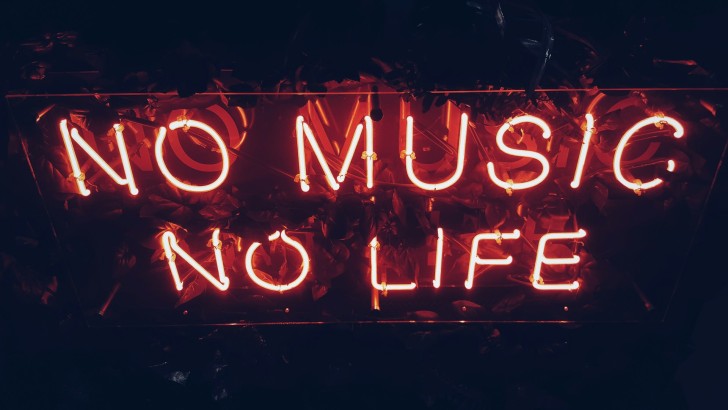
The Promise of Intelligent Composition
Music has always been about finding the right balance between inspiration and execution. Too often, artists spend hours fine-tuning technical details instead of expressing their ideas. MusicCreator AI steps in by automating much of the production process, freeing up energy for the creative spark. The platform allows for instant genre selection, customizable moods, and even text-to-song conversion. With this approach, it invites not just musicians but also marketers, educators, and content creators to experiment with sound on their own terms.
Digging Into the Toolset
Unlike many AI generators that stop at loop production, MusicCreator AI pushes the boundaries further. Users can create full arrangements that include rhythm, harmony, and melody working in harmony. One of the most valuable additions is its Stem splitter, which lets users extract vocals, instrumentals, and percussive layers from existing tracks. This single feature makes remixing, sampling, or teaching music theory much easier, since you can isolate each component with precision.
How the Experience Feels in Practice
Starting a session with MusicCreator AI is refreshingly simple. Choose your desired vibe, type in a lyric prompt if you want words included, and let the AI generate options in seconds. Unlike traditional DAWs, there’s no overwhelming setup or need for technical adjustments—everything runs in a browser. When working with uploaded audio, the stem separation module provides a near-studio-grade breakdown of parts, something that previously required expensive plugins or third-party software.
Strengths That Set It Apart
Several aspects make MusicCreator AI stand out. First, the versatility across genres means it doesn’t limit your sound palette. Second, the ability to go from raw lyrics to full songs within minutes drastically shortens creative timelines. And third, the integrated Stem splitter bridges the gap between music generation and audio manipulation, effectively combining two distinct markets into one seamless product. For creators under tight deadlines, this is a game-changer.
Where It Falls Short
No review would be complete without addressing imperfections. The platform’s outputs, while polished, sometimes reflect the AI’s algorithmic patterns, lacking the “human imperfections” that make live music so organic. Experienced producers may find the customization limited compared to full digital audio workstations. Additionally, internet access is required, which could be restrictive for those who prefer offline tools. Still, these drawbacks are relatively minor when weighed against the benefits.
Who Will Get the Most Value
MusicCreator AI is not aimed solely at professional musicians—it thrives in multidisciplinary environments. Video creators needing royalty-free tracks, podcasters who want unique intros, DJs remixing popular hits with the Stem splitter, and educators demonstrating music composition will all find something of value. It’s essentially a multi-purpose toolkit for anyone who interacts with sound in their work or hobby.
Market Impact and Relevance
The music tech space is crowded, with countless startups offering beat generators or loop libraries. What sets MusicCreator AI apart is its hybrid design: not just generation but also dissection of sound. This dual capability signals a future where AI doesn’t replace musicians but enhances workflows, making high-quality audio production accessible at scale. In a time where content is king and originality is demanded, tools like this aren’t optional luxuries—they’re strategic assets.
Closing Perspective: More Than Just a Tool
Ultimately, MusicCreator AI feels less like a novelty and more like a shift in how we think about producing music. For the casual creator, it offers instant gratification; for professionals, it’s a way to speed up experimentation and idea testing. Whether you’re writing your next single, scoring a video campaign, or reimagining old tracks with its Stem splitter, the platform ensures that creativity doesn’t get lost in technical hurdles. In short, it represents the next step in democratizing music, where artistry and automation finally work in harmony.
 Editorial staff
Editorial staff

 Editorial staff
Editorial staff


